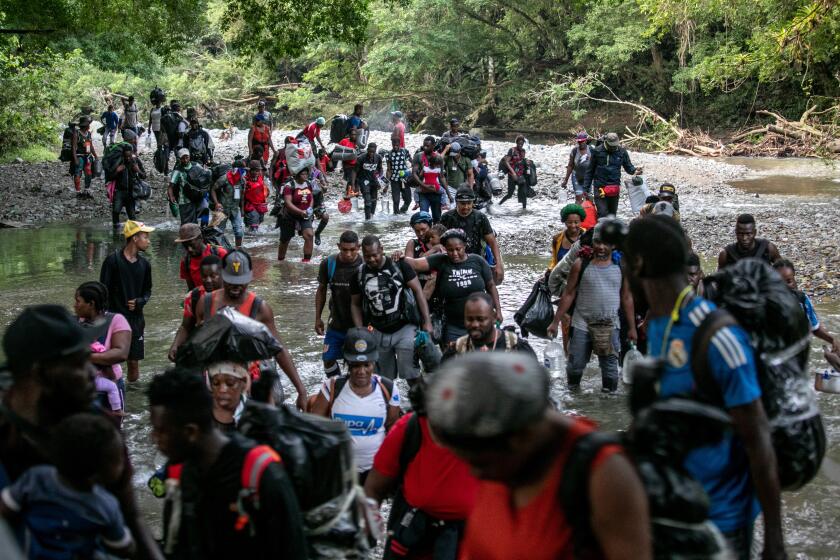Panama reports a sharp increase in migrants crossing the dangerous Darien Gap

- Share via
PANAMA CITY — Panama’s government said Wednesday that 50,000 migrants crossed the treacherous Darien Gap linking Colombia and Panama in the first two months of 2023, five times more than in the same period last year.
Last year 250,000 migrants made the crossing, with big spikes in September and October, a trend that suggests more journeys this year.
The increase was particularly noticeable among children and underage migrants. The People’s Defense Office said 9,683 migrants younger than 18 crossed the jungle-clad Darien route in January and February. That was seven times as many minors as crossed in the same period last year. The office said 1,119 of the latest young migrants were not accompanied by adults.
The office and U.N. rights organizations said the Darien Gap crossing has now become an established route for migrants heading from South America to the U.S. border.
Migrants from Haiti and around the world are camped out in northwest Colombia, a staging ground for the harrowing trip to the United States.
“Year by year, the number of migrants crossing through Panama grows, and the trend in the first months of 2023 suggest an unprecedented growth,” said Alberto Brunori, the Central America regional representative of the U.N. human rights office.
The 250,000 migrants who crossed in 2022 was nearly double the 133,000 who crossed in 2021, according to the International Organization for Migration.
The trip through the inhospitable jungle is fraught with dangers, including thieves, human traffickers and the possibility of sexual assault. Armed groups operate in the region.
The unprecedented numbers come as the United States government tries to make the journey less appealing.
The administration said Jan. 5 that it would admit up to 30,000 people a month from Cuba, Haiti, Nicaragua and Venezuela on a process called humanitarian parole if they applied online, entered at an airport and found a financial sponsor.
At the same time, Mexico agreed to take back the same amount from those countries who enter the U.S. illegally and are expelled under Title 42, which denies them rights to seek asylum, with the stated goal of preventing the spread of COVID-19.
More to Read
Sign up for Essential California
The most important California stories and recommendations in your inbox every morning.
You may occasionally receive promotional content from the Los Angeles Times.











